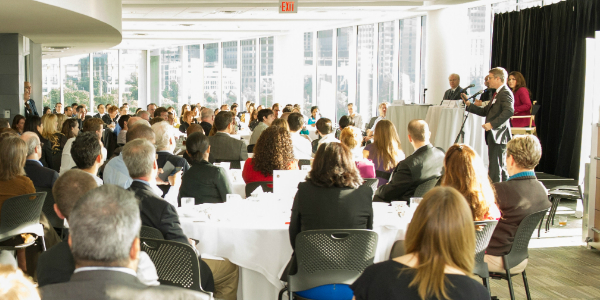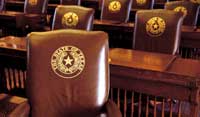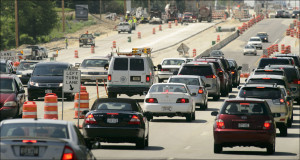
After the recent November elections, state and local government saw the biggest turnover in more than a century. Texans elected new leaders in six prominent statewide offices (Governor, Lieutenant Governor, Attorney General, Comptroller, Land Commissioner, Agriculture Commissioner) at least 25 new members in the Texas House, and 8 new members in the Texas Senate. As the newly elected officials take their seats both locally and statewide, their agendas and decisions will impact the priorities of our city and county.
This month’s panel of experts weighed in on the new government climate and gave us a preview of the upcoming legislative session. Panelists included Deece Eckstein, Intergovernmental Relations Coordinator, Travis County; Donna Howard, State Representative, Texas House District 48; John Hrncir, Government Relations Officer, City of Austin. KXAN news anchor Shannon Wolfson moderated the discussion, and Kevin Schwaller, also of KXAN, fielded questions from the audience.
Highlights from the morning:
#1 What are the expectations with the new leadership?

Governor Perry has been in office for 14 years and has made almost every appointment possible in the state. Once Governor-elect Abbott gradually starts appointing people to those boards, commissions and agency heads, we will see noticeable changes.
Donna Howard noted the importance of new leadership in the top three state positions: Governor, Lieutenant Governor and Speaker of the House. “Speaker Strauss, who I assume will be our next speaker as well, is going to be the most seasoned,” she said, “and that will put him in a position of knowing how to operate more efficiently and effectively.”
Deece Eckstein agreed that the large turnover will make the session challenging. “Institutional memory is a very important part of the legislative process and there’s going to be less of that this time around.”
#2 How will the new state government effect local government?
From the perspective of the counties and local governments, many officals were elected on a campaign of “shrinking government.” Since it’s harder to get a hold of the state budget, said Eckstein, more attention is focused on local entities: schools, counties and cities. “We anticipate a lot of legislative attention and not all of it will be welcome,” he said.
According to Hrncir, cities, unlike school districts and counties, have a lot of authority granted to them through state statutes and the constitution. “Therefore, what cities have done historically is to defend the authority that they currently have. A lot of issues come up in Austin because we’ve got a city that’s very liberal in a very conservative state.”
The panelists agreed that utilities, school funding, and the state budget will be the highest priorities. There may be a move to regulate utilities more. The school funding issue, which is waiting for a Supreme Court decision, may dictate whether or not AISD continues to put more money into the state fund than any other district in Texas.
The budget, said Howard, is the number one focus. “The biggest challenge is going to be: How do we really honestly talk about the budget? How do we talk about our priorities in terms of investing in transportation and water infrastructure, as well as human capital and education? How do we do that and be responsible with the budget we have to work with?”
#3 Are there state legislative priorities that may conflict with the county and city?
Eckstein said he is most concerned about revenue caps–the idea that the Legislature would tell cities and counties how much they can increase their budgets by from year by year. “At a time of fast growth a lot of needs,” he said, “those decisions are best made by people at the local level.” Past Legislatures have agreed with this philosophy and he hopes it prevails over the idea of shrinking government.
Hrncir agreed, explaining, “If you look at infrastructure that’s being built around the country, it’s largely being built by cities and counties. If cities’ and counties’ ability to raise revenue is limited even further, it will have an impact on all the areas that are growing rapidly. And in Texas that’s the big cities.”
Taking a more philosophical view, Howard said, “The other part of the problem is that the state has fallen back on some of its traditional responsibilities and therefore pushed more and more on to the local jurisdictions. At the same time we want to tie their hands, which makes it an untenable situation in so many ways.”
#4 Are there state priorities that may benefit us locally?
The panelists agreed that Medicaid is a critical issue and they are hoping that the conversation about it moves in a positive direction. Eckstein said, “Central Health works with limited resources and does a really good job, but the more people we can cover and the more we can fund with state and federal funds the better off our community will be.”

Eckstein said he is cautiously optimistic that the state will put money into transportation. “We are very close to critical mass to legislators who will make continued investments. And there has been lots of voter support.”
Transportation funding is also one of the city’s top priorities, said Hrncir. “Any improvements in that funding, and the stopping of diversions from the fund that’s provided through the gas tax, is important. The more money that goes into transportation will help us and all the other rapidly growing areas of Texas.”
#5 Calls to Action
What’s the most important thing we can do as individuals and taxpayers to help shape what is going on in the Legislature?
Donna Howard: “It’s extremely important that those of you who are in leadership positions interact with your constituency, whatever that might be, and make sure they are informed.”
Deece Eckstein: “Pay attention. Go to the Texas Legislature online, where you can find bills and track bills. Just being informed. We are also lucky to have excellent news sources here. Follow the information; get involved; show up; testify on a bill; write a letter to your legislator. All those things are ways we can make a difference.”
John Hrncir: Testifying is very important and feel free to contact me if there’s a city issue you particularly want to follow. Cities are fundamentally grassroots, so getting input from citizens is a way of influencing the legislation that’s so critically important to us.
Shannon Wolfson: We have an Emmy-award winning political program that runs every Sunday morning called State of Texas In Depth. Especially during the session, our reporters cover everything that has happened during the legislative week.
Full Audio of the Event
